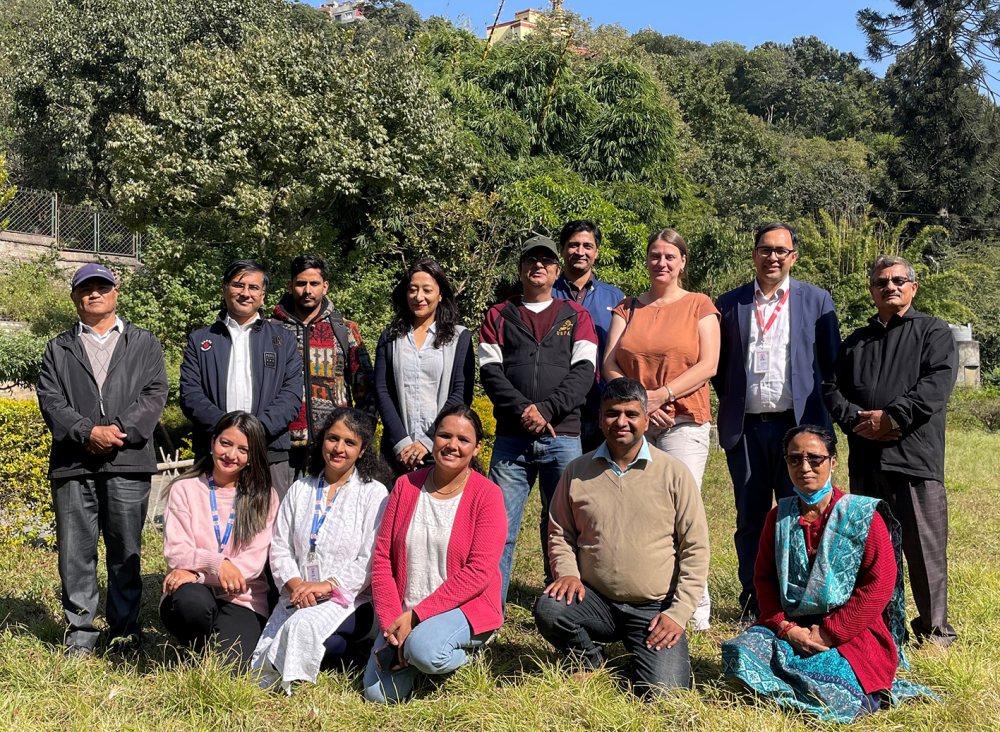Nepal is a top-ranked country in terms of vulnerability to climate change

Dr Meghnath Dhimal is an Environmental Health Scientist and currently serves as a Chief Research Officer at the Nepal Health Research Council. His research focuses on environmental health, climate change, and the broader determinants of health. He talked to Samik Kharel about the profound impacts of climate change on human health, and the upcoming ITM Colloquium to be hosted in Kathmandu, Nepal. This will be one of the first conferences in the Global South which explores diverse impacts of climate change on our health.

Recent studies show that Nepal is highly vulnerable to climate change impacts. How?
Broadly speaking, the effects of climate change can be direct or indirect. Direct impacts involve events like heatwaves, storms, forest fires, floods, and droughts, which are immediate and tangible consequences of a changing climate. Indirect impacts are mediated through broader effects on ecosystems, economies, and social structures such as vector-, food-, and water-borne diseases as well as non-communicable diseases, malnutrition and mental health. However, research is lacking on these indirect impacts.

How does the climate crisis affect tropical diseases?
Our studies show that mosquito habitats in Nepal are expanding to the hilly and mountainous regions: disease vectors have now established themselves at altitudes of at least 2000 meters above sea level. As a result, the occurrence of indigenous cases of vector-borne diseases to previously non-endemic high mountain regions is also increasing. This phenomenon has also been reported from Hindu-Kush Himalayan region which extends from Afghanistan to Myanmar. The recent outbreaks of dengue in Nepal in 2022 and 2023 further confirm impacts of climate change on transmission of dengue in mountainous regions. Our findings are in line with those of The Intergovernmental Panel on Climate Change (IPCC), an intergovernmental body of the United Nations.
Your work includes health systems research. How important is it to build climate-resilient health systems?
Resilient health systems are crucial to enhance, maintain, and restore the population’s health, which is adversely affected by the effects of the climate crisis. The building blocks for developing such a health system include early warnings systems, climate change research, climate resilient infrastructure, climate informed health programmes, emergency preparedness, dedicated financing, and many more.
Which public health initiatives have worked well in Nepal to mitigate the health impacts of climate change?
The Government of Nepal has integrated climate change into health policies, demonstrating its commitment to addressing the issue. The Ministry of Health and Population has created the Health National Adaptation Plan (H-NAP), aligning with UN recommendations. This plan prioritises strategies for adapting health to climate change. Several achievements have been made, including research advancements, capacity building, and awareness campaigns. Nepal's research on climate change and infectious diseases has influenced both national and international policy documents, notably the 2022 IPCC report. While climate change and health are incorporated into national and federal frameworks, there's a need for provincial and local governments to do the same for effective action. Insufficient funding remains a significant obstacle.

You are co-chair of the scientific committee of the 2023 ITM Colloquium. Can you tell us more about the significance of this event?
ITM in Antwerp has been collaborating with Nepalese institutions for many years. At present, the Nepal Health Research Council and ITM are implementing a research project on climate change and vector-borne diseases. By organising this Colloquium together, we aim to highlight Nepal as one of the most vulnerable countries to climate change and to amplify the voices of the Global South. This is one of the first conferences in the Global South which explores diverse impacts of climate change on human health. The presentations will cover the impacts of climate change on infectious diseases; mental health; non-communicable diseases and sexual, reproductive and child health among others. It also covers global, regional and national response to address health impacts of climate change and finally discussion will be on building climate resilient health systems for addressing climate crisis.
We hope that the Colloquium will create a platform for scientists from around the globe to exchange information and to communicate research results ahead of the upcoming 28th United Nations Climate Change Conference (COP28) in Dubai.
Spread the word! Share this story on









